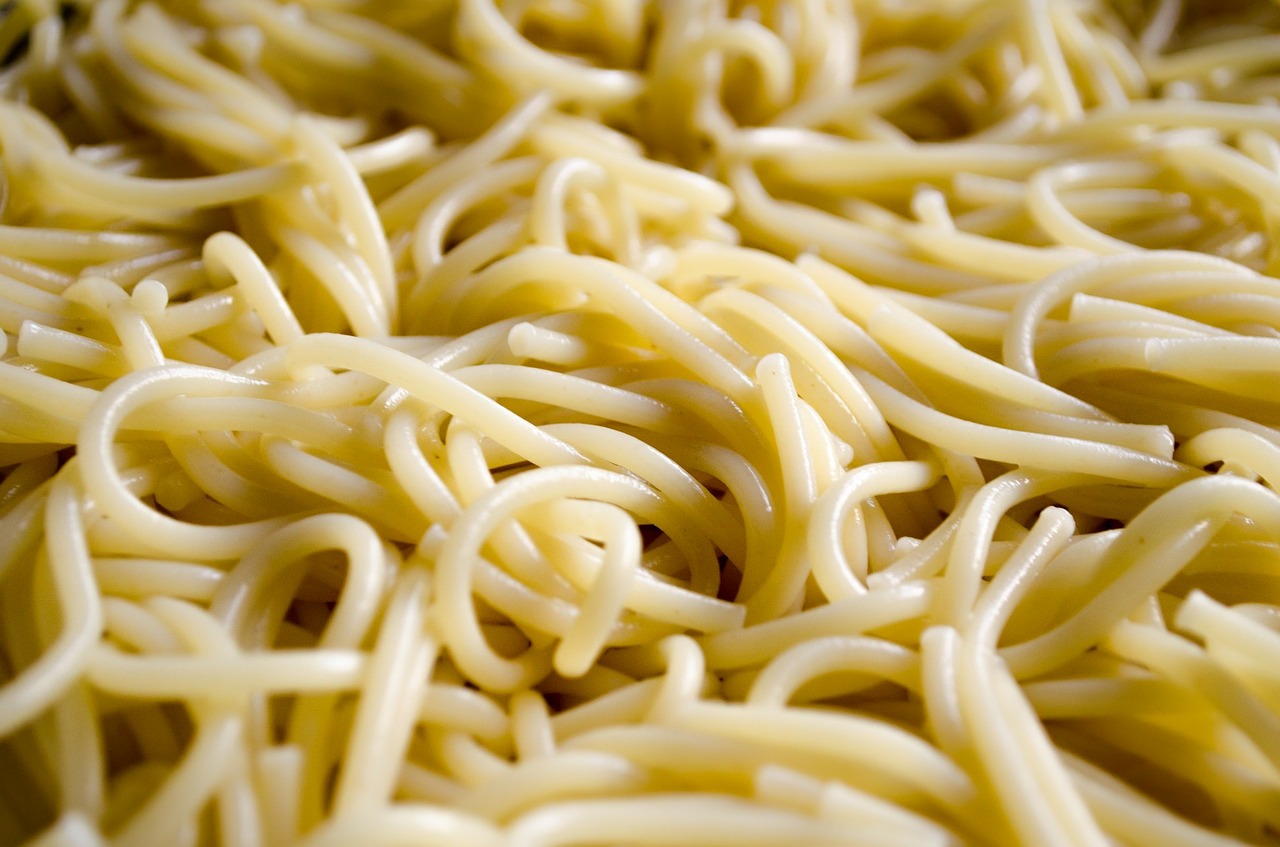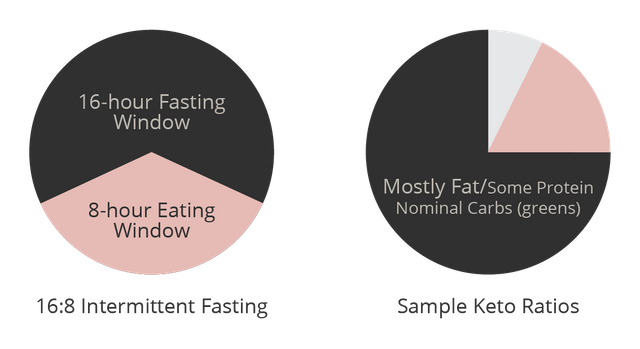
Don’t spend time beating on wall, hoping to transform it into a door.
— Coco Chanel
In my last article, What If We've Been Thinking About Weight Loss All Wrong?, I said people become insulin resistant from regularly consuming foods that cause big insulin spikes. This kind of eating over many years, especially when you add late-night meals and frequent snacking during the day, floods the bloodstream with insulin. The body adapts to the constant flow of insulin by desensitizing the cells to insulin — resulting in #InsulinResistance.
We Just Want to Lose Weight
So what? Why should we care if we are insulin resistant? Isn't this just another new buzz phrase anyway? But if we're insulin resistant, we're working against our hormones and have to work harder to burn body fat. We hit a wall and can't seem to lose weight, no matter how many calories we're willing to give up eating or how many we try to burn at the gym. It just seems harder to lose weight as we get older than it was when we were young, fresh and still insulin sensitive.
And there it is. Over the years, we've been soaking our cells in glucose, and have, therefore, lost our sensitivity to insulin. That's why understanding insulin resistance and how to restore our insulin sensitivity matters. We want to create the easiest and surest path to weight loss. Working against our body chemistry just adds years of frustration and yo-yo dieting.
OK, So How Do We Know If We are Insulin Resistant?
It's commonly accepted that someone who has been obese for years is almost certainly insulin resistant. So, let's add that to the top of the list. Here are some other common indicators of #insulinresistance:
- #Obesity
- Belly fat
- A fasting glucose of 100 - 125 mg/dL
- Persistent #fatigue
- Constant #hunger
- Brain fog
- Dark patches of skin in the folds or the back of the neck (less common)
- High levels of inflammation
- Chronic stress
- Inability to lose weight despite repeated attempts
Reduce Insulin to Restore Insulin Sensitivity
The quickest way to restore insulin sensitivity and lose weight is to reduce the amount of insulin we produce. The most natural way to reduce the amount of insulin our bodies produce is by lowering the amount of glucose in our blood. We can lower our blood glucose by restricting carbohydrates (especially sugars and refined carbs).
Let me say that again: to lower insulin, we have to lower blood glucose, which means consuming fewer carbohydrates, especially refined carbs, and sugars. Now we know why low-carbohydrate diets can be so effective. Consuming fewer carbs means we are lowering our insulin production.
But one lifestyle change does not fit all. So, here is a quick overview of some of the methods I've tried (alone or in combination with others) to reduce the levels of insulin in my body:
Saying NO (not necessarily NEVER) to Sugar — cutting sugar alone may be the only change some of us have to make. Sugar is more than an empty calorie. It may well be a toxic calorie, causing inflammation and potentially as much liver damage as alcoholism.1 Make #sugar a once-in-a-blue-moon treat.
Ketogenic dieting — cutting out all/most carbs and replacing them with healthy fats (avocado, coconut oil, olive oil, nuts, butter, cacao butter). Fat causes the lowest insulin response (some say zero, but I don't find pure fat very palatable). A keto diet favors high fat, a small amount of protein and minimal carbs made mostly of green, fiber-rich veggies, and no fruit.
Low-carb dieting — cutting sugar and refined carbs and replacing them with more protein. Unlike keto diets, effective low-carb diets favor protein over fat and allow more fruit, but still cut refined carbs and sugars. The Mediterranean Diet is a good example of a sustainable low-carb diet. However, too much protein can still spike insulin as much as a potato. So it's important not to go overboard on the steak if our bodies don't need all that energy.
Adding food hacks that lower insulin response — apple cider vinegar, cinnamon, garlic, fiber, protein and fat all lower the insulin response you get from eating high-carb foods. So, adding sour cream and butter to a potato can actually help. I like boiling potatoes rather than baking them to lower their glycemic index. Better still, I eat them cold.
Fasting — if all foods (except pure fat) cause an insulin response, then the surest way to reduce the insulin in our bodies for a while is to fast. By fasting, we are turning off our fat-storage hormone. I am a HUGE fan of fasting. The benefits are endless, as are the myths about fasting. I'll cover more in upcoming posts.
Try intermittent fasting — think you can't handle not eating for a while? Don't sweat it. You do it every night while you're sleeping. Intermittent fasting just means extending the number of hours we abstain from eating between meals. Generally, the longer periods of fasting yield slightly better results, but giving your digestive system a break for even 14 hours a day can have significant benefits. I started by skipping breakfast and not eating after 8:00 p.m. every night.
My Never List
I do have some personal NEVERS, foods that I've completely omitted from my diet because they are incredibly unhealthy, and I frankly don't miss them. I encourage anyone trying to lose weight to create a Never list and just try sticking to that first. It's weird, but when I first did this, I realized there were things I ate or drank because they were available even though they weren't particularly good for me, and I never really craved them. Here's my list:
Fruit juice — stripped of all the protective fiber, fruit juice winds up being little more than a glass of liquid sugar. A glass of grape juice has as much sugar as a can of Coke (39g). And beware of juice beverages. A bottle of Naked Juice's Pomegranate Blueberry has a whopping 61g.
Low-fat and non-fat foods — stripped of healthy fats and silky flavor, these foods try to make up for their lack of taste by adding sugars and other chemicals that just don't make the cut for a healthy lifestyle.
Dry breakfast cereals — these cereals have some fiber added back into them and are "fortified with vitamins and minerals" because all that wholesome goodness that had once been in these foods was stripped away from over-processing. If I'm going to eat breakfast, I go for eggs and bacon, or hummus and olives, or avocado and melon. I'll eat breakfast food like sugarless oatmeal or grits only as part of an afternoon meal and when I want a treat or a few carbs.
Beets, okra and goats milk — I just don't like them. To me, beets taste like wet soil, okra is too slimy, and goats milk... (better left unsaid). Why are these unhealthy? Forcing myself to eat something I don't like almost always leads to dissatisfaction, which leads to cheating and overeating. That makes these otherwise healthy foods a bad choice for my long-term goals. I never, ever make myself eat something I don't like. Better to go without.
Restoring Insulin Sensitivity and Losing Weight
Nutrition science is still relatively young compared to other disciplines. The good news is that the same steps we take for weight loss can also restore or at least improve insulin sensitivity. The first 30 days are crucial. We may still be experiencing food cravings or trying to get used to a new food schedule or to different types of foods. Getting rid of the sugar and carb cravings is essential. We can start there. The less we eat sugar and carbs, the less we'll crave them. Going cold turkey may be best, especially at the beginning of our diet when we're feeling more committed or at least more fed up with the fat and fatigue.
The path I follow for reducing insulin and increasing insulin sensitivity (and weight loss) is a combination of #intermittentfasting and #keto dieting.
Intermittent fasting — my favorite intermittent fasting cycle is 16:8 — I fast from 4:00 p.m. to 8:00 a.m. the next morning (16 hours), and have an eating window of 8:00 a.m. to 4:00 p.m. (8 hours), then I fast again. Digestion is very hard on the body and can actually stress our systems, depending on our diets. Because I'm not eating anything for 16 hours a day, my digestion has a chance to relax and so does my pancreas. I give it a rest from having to produce any insulin.
Ketogenic (Keto) dieting — when I eat, I make sure my food choices will spike my insulin as little as possible. My first meal is crucial. It should be almost all fat. Basically, for me, it's a fat coffee (blended with coconut oil, ghee, cacao butter and an egg yolk). My meal later will be high fat, some protein, and nominal carbs, for example, a cheese frittata with slices of avocado, or pistachio-crusted salmon with Caesar salad on the side, heavy on the parmesan (homemade, sugar-free dressing).
 (Image Source: @Sprat)
(Image Source: @Sprat)
Some people think we can never fully restore insulin sensitivity. I've seen no research that supports this opinion. In fact, the human body is incredibly adaptive. That's why we become insulin resistant in the first place. Our bodies adapt to all the glucose we feed it. Similarly, our bodies adapt to the lack of glucose by burning an even more efficient alternative fuel source, ketones. I'll cover ketones and ketogenic dieting in greater detail in an upcoming article in my #IFKeto series.
- See Sugar: The Bitter Truth, a University of California video lecture available through YouTube by Pediatric Endocrinologist, Robert Lustig, M.D.
Remember to Consult with Your Physician . . .
THIS IS NOT MEDICAL ADVICE. Please don't take it as such. Before trying anything I discuss here, it's important you first consult with your physician/nutritionist/counselor/life coach/family. My writing is meant to open up a dialog about health and nutrition based on years of research, head-scratching, and self-experimentation. It is not a "how to" or meant to advise you in any way, especially if you are pregnant, if you are a child, or if you have a medical condition. That said, if your healthcare provider is still recommending low-fat and not low-sugar, it may be time to look for another doctor.
— @Sprat
Damn, I missed this article. Reply to this comment, and I'll upvote your reply. Please keep posting!
Downvoting a post can decrease pending rewards and make it less visible. Common reasons:
Submit
Congratulations @sprat! You received a personal award!
Click here to view your Board
Downvoting a post can decrease pending rewards and make it less visible. Common reasons:
Submit
Congratulations @sprat! You received a personal award!
You can view your badges on your Steem Board and compare to others on the Steem Ranking
Vote for @Steemitboard as a witness to get one more award and increased upvotes!
Downvoting a post can decrease pending rewards and make it less visible. Common reasons:
Submit